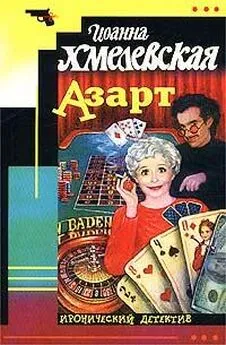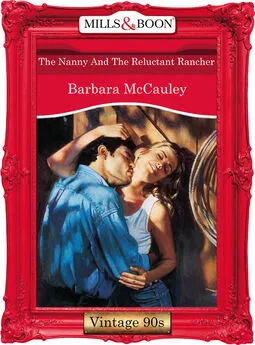Barbara Hambly - Dead water
- Название:Dead water
- Автор:
- Жанр:
- Издательство:неизвестно
- Год:неизвестен
- ISBN:нет данных
- Рейтинг:
- Избранное:Добавить в избранное
-
Отзывы:
-
Ваша оценка:
Barbara Hambly - Dead water краткое содержание
Dead water - читать онлайн бесплатно полную версию (весь текст целиком)
Интервал:
Закладка:
“Yes.” January came around behind her and laid his big hands on her shoulders—the muscles of her neck felt like wood under his fingers. “Cain and his slaves. There are unanswered questions concerning Cain and his slaves on the night of Weems's death, too, aren't there?”
Rose opened her mouth to say something, then closed it. Then she said, “Cain . . . is using his slaves as agents? That's terribly risky, isn't it? He's a slave-dealer. . . .”
“He says he's a slave-dealer,” said January softly. “But we've been on this boat for over a week and I have yet to see him even try to sell a single slave.”
Outside, the pilot-house bell clanged as the Silver Moon approached the landing of Brock's Wood-Yard. Souter's voice trumpeted orders to the deck-hands to cast lines and bring her in. A shadow darkened the doorway of the stateroom, and Quince said, “Much as I abhor intemperance of any variety, might I offer your master a sovereign remedy for the inevitable fruits of such behavior? In this particular instance I am inclined to hold him guiltless—it is clear to me that the quarrel was forced upon him by that . . . that abominable hussy, and Mr. Molloy got no more than he asked for.”
“That's very kind of you,” said January as Rose moved aside to let the young man into the already crowded stateroom. “As it happens, I suspect my master is ill rather than drunk. There was no liquor in the stateroom, and, as you can see, no smell of it.” He took the bottle proffered and sniffed the cork. “What's in it?”
“A distilled vegetable elixir known to the ancient sages of Persia and India,” replied Quince helpfully.
“Known to the Old Man of the Mountains, anyway,” remarked Rose, taking a sniff of the cork, but she spoke in Latin and January—who had also detected the unmistakable pong, not of the Old Man of the Mountains' legendary hashish but of more modern laudanum—carefully schooled his face not to laugh.
The vibration in the deck was easing as the engine stopped. Gleet yelled, “You bucks get that wood on deck fast as you can, hear?” and footfalls thudded dimly down below.
“As if one can smell anything,” added Quince, his handsome face set in a grimace, “over the stench of poor Weems. It is absolutely disgraceful that we were so long delayed in taking his body to Mayersville. I cannot think what state it will be in, to be returned to Philadelphia for burial. I have asked to be moved—it will serve Mr. Tredgold right if no one is able to occupy that chamber ever again. All Molloy's fault, and Tredgold's, for letting a pilot ride roughshod over him in that fashion. I have taken it on myself to write to Weems's family. . . .”
“Did you know Weems?” asked January. “Before last Monday, that is?”
Rose raised her eyebrows at the question, but Quince replied without hesitation, “Not well. I saw him, of course, at the meetings at Brotherhood Hall—the Philosophical Antislavery League. But I suspect he was only a dabbler. He ceased to come, oh, four or five years ago. I was not surprised,” he added primly, “to learn that he had submerged his principles in his quest for pecuniary advancement in the slaveholding states.”
“But he did go to Abolitionist meetings in Philadelphia?”
“Oh, yes. It's funny—well, not really funny—but queer, in connection with those meetings . . .” Jack Quince laughed self-consciously, and ran a hand through his smooth black hair, rendering his face suddenly boyish. “I could have sworn there was another old acquaintance from them here on this boat, and I was much chagrined to discover how wrong I was. What curious tricks the Deity plays upon humankind to be sure!”
“What was that?” asked January, leaning his elbow on the side of the bunk and looking absorbed in fascination.
“Well, when I first saw that dreadful Mr. Cain, I could have sworn that he was one of the speakers at those Brotherhood Hall meetings. In fact, I mentioned the matter to Weems, and asked him if Cain didn't look exactly like Judas Bredon, except for the beard. Imagine my embarrassment when I discovered that not only was Cain not an Abolitionist, but that he was actually a slave-dealer, a trafficker in—”
From somewhere close—down on the bow-deck, January thought—came the unmistakable crack of a pistol, followed by a woman's scream.
An instant later Souter's voice rose in panic. “Pirates! In the wood-yard—” and was cut off mid-sentence by the bark of another gun. Then all hell broke loose.
A fusillade of gunfire crackled from the bow-deck. A man howled in agony, a woman screamed something in German, and the whole vessel shuddered and heaved.
January said, “Stay here,” grabbed Hannibal's pistol from the floor beside the bunk, and darted from the stateroom, whose door was promptly slammed behind him—he heard Quince's wailing protest, “But he told us to stay here!” as he raced along the promenade. Other men jostled him, running toward the bow, too, Roberson and Lockhart pelting from their cabins coatless and in stocking feet. A bearded ruffian with a pistol in either hand came around the front corner and started to yell something to them—Lockhart whipped a pistol from his pocket and fired.
January dropped to the deck—the ruffian fired both weapons at once and missed with both, then turned and fled as the two planters, both completely unscathed, tore after him, whipping from their belts the bowie-knives that Southern manhood rarely went without.
Underfoot the Silver Moon lurched and heaved, the paddle driving forward and someone in the pilot-house—almost certainly Lundy—veering the flat-bottomed craft over the shallow mud of the shelving shore by the wood-yard and back to deeper water. Reaching the bow, January got a glimpse of one-eyed Levi Christmas down on the main deck below, crouching behind a crate with half a dozen ruffians while two or three more—including several of the rougher deck passengers—struggled with the deck-hands.
They were waiting at the wood-lot, thought January. A wave of self-disgust rolled over him that it hadn't occurred to him, after all the delays around Hitchins' Chute, that the wood-yard was the single place where the outlaws knew the boat would have to put in.
January wondered if Hannibal's pistol was even loaded. A moment later a bearded scoundrel in a faded shirt swung himself up over the promenade rail with a knife in his teeth and ran straight for the bow stair to the main deck, to take its defenders Davis, Gleet, and Cain from behind. The scoundrel had three pistols slung around his neck on ribbons, the way pirates of old used to carry them—he was reaching for one to shoot Davis in the back, when January shot him from a distance of less than eight feet.
Hannibal's gun was indeed loaded.
Davis whirled as the bandit fell, his own pistol at the ready. January ripped free both the bandit's unfired pistols and the powder-horn. He tossed one gun down to the young planter, and the next second Christmas and his ruffians emerged from cover and made a run for the stair, firing as they came.
Davis flattened behind a stanchion as a bullet tore a hunk of wood inches from his face. Cain fell back against the rail, clutching the spreading crimson stain on his chest, then pitched forward off the stairway to the deck. He was still trying to get up, when two of the attackers seized his arms and threw him overboard, one of them following him immediately, shot through the head by Davis. Gleet turned tail and charged up the stair, nearly colliding with January as half a dozen deck-hands rallied around Davis, armed with logs of firewood, push-poles, and an assortment of artillery that was illegal for any black man to possess.
“They'll try to take the engine-room and the pilot-house,” January yelled down the steps. “Anyone at the back of the boat?”
“Eli in the galley!” a deck-hand yelled back, so January dashed to the steps that ran down to the stern by the galley passway. No one was guarding either stern flight, nor the rear door of the engine-room in the passway. At the moment the only occupants of the deck were Sophie and Mrs. Fischer, in the midst of hauling the work-table out of the galley and dragging it to the rail as an improvised raft.
“Hold it steady, you imbecile girl!” Fischer screamed at her weeping maid.
“Don't do it!” January yelled, and both women whirled. Sophie was ashy with shock, but Mrs. Fischer raised the pistol she held to fix unwaveringly at January's heart. January halted, let his own pistol fall, and held up both hands. “You'll be safer on board,” he told her.
“Under the protection of this parcel of dolts?” Mrs. Fischer stepped close enough to scoop up the weapon.
“Madame, he's right, I told you! Please . . .”
Fischer didn't even glance at her servant, her eyes on January. “Get on the raft, you stupid wench, and don't argue with me!”
“Madame,” said January, “all you'll do by jumping ship is make yourself a target. . . .” As if to prove his words, a bullet tore the deck near his feet.
“And I suppose if I remain, Mr. Christmas is going to content himself with inquiring politely about the gold?” Her hat and veils gone, her black hair tumbled thick about her shoulders, Mrs. Fischer had an air of grim gypsy wildness, as if she had finally thrown aside her disguises and revealed the woman beneath. “No, thank you . . . I'm sure that bitch Theodora will be as quick to point you out, and your drunken master, as the ones who know something about it, as she will to point her dirty little finger at me. Now, get that table under the rail!” She reached back to grab Sophie's arm and thrust the girl at the flimsy craft balanced on the edge of the deck.
But Sophie sobbed, “No!” and pulled back. As another bullet ripped the deck, Mrs. Fischer shoved the girl aside and kicked the table down into the river, gathering her black skirts above her knees to slither under the rails and down to its work-smoothed surface. The shouting in the promenades was getting louder as the deck-hands, armed with sticks of firewood, clustered among the slaves—somewhere Levi Christmas's booming bass voice yelled, “Don't shoot the goddam niggers, they're worth a thousand dollars apiece! Go over the stairs to the back!”
The thunder of boots on the upper-deck promenades seemed to decide Mrs. Fischer. She pushed off the side of the boat, crouched almost flat on the stained oak, and began to paddle with a broad-bladed fire-shovel toward the shore. Her black clothing stood out against the muddy yellow of the river, the blinding glare of the morning sun.
“Get up to the pilot-house,” January ordered Sophie, who seemed frozen by the sight of her mistress paddling away. When the girl only raised tear-soaked, terrified eyes to him, he shook her, and thrust her in the direction of the stair. “Hurry! They'll be back here in a minute . . . !”
She fled as if all the devils of Hell were snapping at her skirts, and January plunged into the starboard promenade, where the deck-hands and the chained slaves clustered tight.
January strode straight to 'Rodus and said, “Cain was shot, thrown overboard. You'll have to use your key.”
The slave looked at him steadily for a moment—“You crazy, man?” demanded a deck-hand near-by.
Someone on the deck above screamed and fell with a crash that shook the arcade overhead. Slowly 'Rodus reached into the filthy juju-bag tied around his waist under the band of his ragged trousers, and pulled out the manacle key.
“Keep them from getting in the engine-room or the pilot-house,” said January. “Guard the stairs and the passway. Will this key work for Gleet's women?”
Читать дальшеИнтервал:
Закладка:








